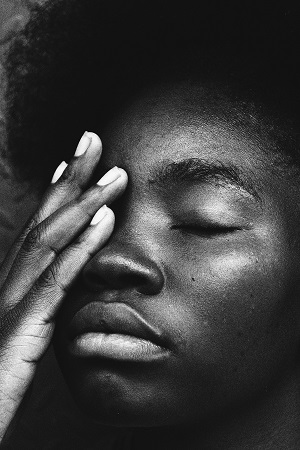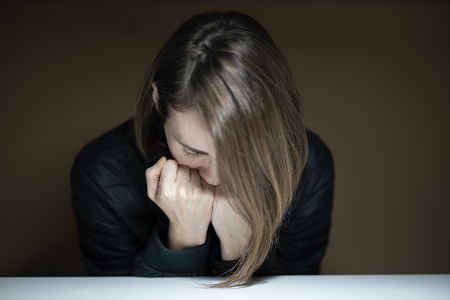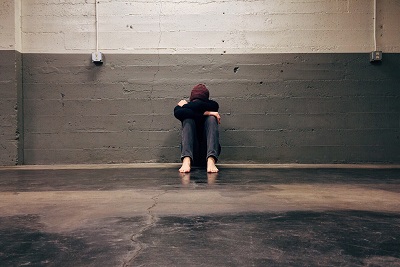Contents
What is depression?
To understand depression and treat it, one needs to know the depression symptoms and causes of depression. Symptoms of depression may differ from person to person.
Depression is not your Monday blues. It is something more than feeling sad for a few days. It is a serious but common mood disorder. Till today many believe depression is not that important and do not consider it a genuine health condition. They believe you can pull yourself together as it is considered a symptom of weakness by many. Depression is not feeling down for a mere couple of days. It is not mood fluctuation and short-term emotional responses.
During the depression, persistent sad or withdrawn feelings can last for weeks or months. It could become a serious health condition when it is recurrent and its’ intensity is severe. The worst thing is, that it leads to suicide. More than 700000 people commit suicide every year. The good news is that there are effective treatments for mental disorders such as depression and with the right treatment and support a full recovery is possible. But there is no treatment for more than 75% of the population in low- and middle-income countries.
The major barrier to treatment is social stigma. There is also la ack of resources and a lack of trained healthcare providers. Because of this sometimes people with depression are often not correctly diagnosed and ironically some people are misdiagnosed with depression and given antidepressants.
What are the symptoms of depression?

- Feeling sad or being anxious often or all the time- Depression symptoms
- Feeling irritable and angry outbursts even over petty matters
- Getting frustrated‚ or restless very easily
- Trouble falling asleep or staying asleep
- Waking up very early or sometime sleeping too much-Depression symptoms
- Having no appetite or eating more or less than normal- Depression symptoms
- Experience tiredness
- Cannot concentrate-Depression symptoms
- Forget details
- Cannot make decisions
- Feeling guilty, worthless, or helpless
- Loss of interest or pleasure in fun activities such as hobbies or sports- Depression symptoms
- Fixating on past failures or self-blame
- Thinking about committing suicide or self-inflicted injury-Depression symptoms
- Feeling aches, pains, headaches, or stomach problems that do not improve with traditional treatment
People with severe depression show noticeable issues in their day-to-day life. Their school, work, social life, and relationships get hampered. Depression symptoms in children and teens and depression symptoms in adults are different and let us look into those issues a bit more in detail.
Depression symptoms in children and teens
Common signs and symptoms of depression in children and teenagers are as below
- Depression symptoms include sadness, irritability, clinginess, worry, aches, pains, refusal to go to school, or being underweight in young children.
- In teens, Depression symptoms include sadness, irritability, negative feeling and worthlessness, anger, poor performance or poor attendance at school, feeling of being misunderstood and being extremely sensitive, usage of recreational drugs or alcohol, self-inflicted injury, loss of interest in normal activities, and social distancing, etc.
Depression symptoms in older adults
Depression symptoms whether in kids or adults should never be taken lightly. Timely treatment is very important.
- Change in personality – Depression symptoms
- Difficulty in memorizing – Depression symptoms
- Physical aches or pain – Depression symptoms
- Fatigue – Depression symptoms
- Loss of appetite
- Sleep deprivation
- Social Distancing
- Suicidal thoughts
What are the causes of depression?
Several factors lead to depression. Though the exact cause of depression is not known with certainty, it is assumed that a combination of genetic, biological, environmental, and psychological factors is involved. Below is a list of possible causes of depression. We need to remember every person is different and for different people, there are different causes of depression.
- Family history plays an important role in depression. If there is a history of depression or mood disorder within the family (blood relatives) chances are high for one to develop depression.
- If a chemical imbalance is in part of the brain which manages mood, thoughts, and behaviour then it could cause depression.
- Changes in hormonal levels could cause depression. during the menstrual cycle, postpartum period, perimenopause, or menopause estrogen and progesterone hormonal levels change which raise a person’s risk for depression.
- Our body and mind also react to early childhood trauma such as fear or stressful situations.
- The brain structure also plays a great role in getting depression If the frontal lobe is less active there is a greater risk of depression.
- Chronic illness, chronic pain, cancer etc also are likely causes of depression.
- Drugs or alcohol misuse can also increase the chance of depression.
- Sexual abuse, the death of a loved one, or financial problems are also reasons for depression.
- An unplanned major change or changes in life can cause depression.
- Taking certain medications such as corticosteroids, beta-blockers, and hormonal birth control also causes depression.
- Having low self-esteem and being too dependent, self-critical or pessimistic could be another cause of depression.
- Having other mental health disorders, like anxiety disorder, eating disorders or PTSD can cause depression.
- Vitamin D deficiency also could be a reason for depression. Studies show that a low level of vitamin D can show symptoms of depression.
Who can get depression?
About 16 million American gets depression every year as per CDC. Who will get depression and who will not, depends upon the causes of depression but are not exclusive to it. It can happen to almost anybody and at any age. There is no fixed rule to determine in advance. Depression and other mental health disorders such as anxiety, etc. sometimes go hand in hand.
Category of Depression and patterns
Depression could be categorised as mild, moderate, or severe. It depends upon the number of depressive episodes, the severity of symptoms and the impact on the individual’s functioning.
- When a person has a one-time episode of depressive disorder, it is called single episode depressive disorder.
- If a person has a history of at least two depressive episodes it is called a recurrent depressive disorder.
- When the depressive episodes alternate with manic symptoms like irritability, increased activity, increased talkativeness, racing thoughts, increased self-esteem, decreased need for sleep, distractibility, impulsive reckless behaviour etc, it is called bipolar disorder.
Conditions that can get worse due to depression include:
It is very normal to feel down occasionally. If this happens to you on regular basis it could be depression. The information we share here is for your knowledge purpose and they are not intended to provide a medical diagnosis of major depression. If you think or feel that you are depressed, get in touch with your doctor or a mental health professional immediately.
- Arthritis
- Asthma
- Cardiovascular disease
- Cancer
- Diabetes
- Obesity
Depression test
There is no rapid kit like Covid-19 to detect depression. Your doctor can reach a decision based on your symptoms and a psychological evaluation. Generally, doctors ask many questions regarding you and your
- Moods
- Appetite
- Sleep pattern
- Activity level
- Thoughts
As there could be other underlying illnesses, your doctor can prescribe blood tests and physical examination. Thyroid problems and vitamin D deficiency may trigger symptoms of depression. NHS UK has one self-assessment quiz set for depression and anxiety (see reference 10).
Complications from untreated depression
Never ignore symptoms of depression. It is a serious mental health issue and has the potential for many complications.
If left untreated, depression can cause a series of further complications such as
- Weight gain or loss
- Physical pain
- Panic attacks
- Relationship problems
- Substance use disorder
- Social isolation
- Thoughts of suicide
- Self-injury
- Suicide
Types of depression
Depression could be of many types. They may share some similar symptoms but there are some differences also.
Major depression
Major depression is a recurring condition. It is also called a major depressive disorder, chronic depression, severe depression, classic depression, unipolar depression etc.
Some of the symptoms of major depression are
- Sadness or grief
- Insomnia
- Fatigue
- Changes in appetite
- Loss of interest in formerly pleasurable activities
- Unexplained aches and pains
- Lack of concentration
- Memory problems
- Inability to make decisions
- Feelings of worthlessness
- Constant anxiety
- Thoughts of self-harm
- Thoughts of suicide
For some people, major depression can last for weeks, months or throughout their life. It can create many problems in daily activities and also in your relationships.
Persistent depression
Persistent depression lasts for 2 years or more. It is also been referred to as dysthymia or chronic depression. Persistent depression might feel less intense than major depression, but it still hurts relationships. It also makes daily tasks difficult.
Some of the symptoms of persistent depression are as per below:
- Deep sadness
- Hopelessness
- Low self-esteem
- Lack of interest in formerly pleasurable activities
- Changes in appetite
- Fatigue
- Concentration problem
- Memory problems
- Social withdrawal
Persistent depression is a long-term type of depression. The severity can decrease for some time and then worsen again. When people have episodes of major depression before or during their persistent depressive disorder, it is called double depression.
Bipolar disorder or Manic depression
Bipolar disorder involves periods of extreme mood swings mania or hypomania which gives you a feeling of euphoria or depression which gives you sadness. There are many types of bipolar disorder such as Bipolar I disorder, Bipolar II disorder, Cyclothymic disorder, etc.
Symptoms of a manic phase include:
- Very high energy
- Less sleep
- Irritability
- Racing thoughts and speech
- Grandiose thinking
- Increased self-esteem
- Risky, and self-destructive behaviour
- Feeling high
Often after or before a manic episode, one can experience a depressive episode.
Depressive episodes symptoms as per below
- Feelings of sadness
- Fatigue
- Insomnia
- Problem concentrating
- Loss of interest in previously enjoyable activities
- Suicidal thoughts
Depressive psychosis
People with major depression could experience periods of psychosis. Depending upon the severity, it can cause hallucinations and delusions. During hallucinations one can see, hear, smell, taste, or feel things that aren’t actually present, such as hearing voices and seeing people who are not there at all. When a closely held belief, that is false or doesn’t make sense, is called delusion. But for the person experiencing psychosis, these things become true and real. This phenomenon is referred to as depressive psychosis or psychotic depression.
Depression along with psychosis may show physical symptoms such as problems sitting still or slow physical movements.
Perinatal depression

Perinatal depression happens during pregnancy. It can also happen within a month of childbirth. Sometimes it is also referred to as postpartum depression. But postpartum depression term only applies to depression after giving birth whereas perinatal depression can occur during pregnancy.
During pregnancy and childbirth body undergoes many hormonal changes. These cause mood swings, lack of sleep and physical discomfort. People who had depression before are at a high risk of developing perinatal depression.
Symptoms of perinatal depression are as below
- Excessive worry about the health and safety of the Newborn.
- Difficulty in taking care of self or the new baby
- Thoughts of self-harm or harming the baby
- Sadness
- Anxiety
- Anger
- Exhaustion
Premenstrual dysphoric disorder
In layman’s terms, Premenstrual dysphoric disorder (PMDD) can be referred to as a severe form of premenstrual syndrome (PMS). Premenstrual dysphoric disorder symptoms are psychological and much more severe than PMS. People with PMDD could experience depression and sadness that hampers their day-to-day functions.
Some symptoms of PMDD are as below
- Extreme mood swings
- Irritability
- Anger
- Sadness
- Despair
- Anxiety
- Panic attacks
- Cramps
- Tenderness of breast
- Headaches
- Joint and muscle pain
- Food cravings
- Fatigue
- Sleep disturbances problems
PMDD could relate to hormonal changes in the body as its symptoms begin after ovulation and start to ease up once the period is over. Depending upon severity PMDD can include suicidal thoughts.
Seasonal depression
Seasonal depression, also called seasonal affective disorder is a depression which is related to certain seasons. Most people with seasonal depression, tend to show depression during the winter months. Their symptoms generally often begin in the fall season and continue through the winter.
Some symptoms of seasonal depression are

- Feelings of sadness
- Hopelessness
- Social withdrawal
- Increased need for sleep
- Weight gain
Seasonal depression may intensify as the season goes on. Seasonal depression can lead to suicidal thoughts. Symptoms tend to improve with the onset of spring.
Situational depression
Situational depression is triggered by specific events or situations like the death of a loved one, serious illness, life-threatening event, going through divorce or child custody issues, being in emotionally or physically abusive relationships, being unemployed or facing serious financial difficulties, etc.
It is quite normal to feel sad and anxious on account of the above-mentioned events. But when these emotions feel out of proportion with the triggering event and interfere with one’s daily life, it is considered situational depression.
Situational depression symptoms include
- Frequent crying
- Sadness
- Hopelessness
- Anxiety
- Difficulty sleeping
- Fatigue
- Social distancing
- Appetite changes
- Aches and pains
Atypical depression
Atypical depression temporarily goes away when one is in a positive atmosphere or event. This could also be mentioned as a major depressive disorder with atypical features. It is neither very rare nor less serious than other types of depression. It is rather challenging as one might not always seem depressed to others. Atypical depression can happen combined with major depression or with persistent depression.
Some symptoms of atypical depression are
- Increased appetite
- Weight gain
- Eating disorder
- Sleeping more than usual
- Insomnia
- Heaviness in arms or legs
- Sensitivity to criticism
- Aches and pains
Prevention of Depression
There is no confirmed way to prevent depression but below mentioned strategies might help.
- Try to control your stress level.
- Boost your self-esteem.
- Be in touch with family and friends.
- Try to avail treatment at the earliest sign of depression.
- Get proper treatment to prevent a relapse of symptoms.
Depression is a result of a complex chain of social, psychological, and biological factors. Bereavement, traumatic events, unemployment, etc. put people on a riskier road to developing depression. Depression, in turn, leads to stress and dysfunction. Prevention programmes could reduce depression. Effective community approaches can help to prevent depression. For example, school-based programmes induce positive coping in children and teens. Regular exercises for senior citizens can also be effective in preventing depression.
What Illnesses Happen with Depression?
Anxiety, obsessive-compulsive disorder (OCD), panic disorder, phobias, substance use disorders, and eating disorders are quite common in people with depression.
How do I know which type of depression I have? When to see a doctor?
If you feel you have any type of depression, talk to your doctor first. Depression is treatable. Do not hide it, do not shake it off. The more delay you will do, the more severe it can become.
If you already had a history of depression and believe it is reoccurring, seek the help of a mental health professional right away.
Let your doctor know all the information about the symptoms, any information about a history of mental illness within the family, and all prescription and over-the-counter medications you take, including supplements and herbs. Do not hide. Your information will help the doctor to reach a more accurate diagnosis and treatment.
What are the treatments for depression?
If properly diagnosed on time, there are treatments that can really help someone with depression. These treatments may include medication or therapy or both. The treatments reduce symptoms and shorten the length of the depression phase. Always listen to your mental health professional and adhere to his advice.
References
- Depression. (n.d.-b). Who.int. Retrieved August 2, 2022, from https://www.who.int/news-room/fact-sheets/detail/depression
- Major depression. (2021, August 8). Hopkinsmedicine.org. https://www.hopkinsmedicine.org/health/conditions-and-diseases/major-depression
- Razzak, H. A., Harbi, A., & Ahli, S. (2019). Depression: Prevalence and associated risk factors in the United Arab Emirates. Oman Medical Journal, 34(4), 274–282. https://doi.org/10.5001/omj.2019.56
- Smith, G. (2005). Depression explained: How you can help when someone you love is depressed. . ABC Books.
